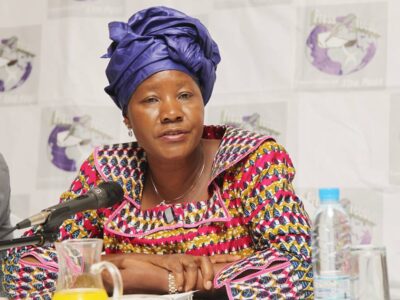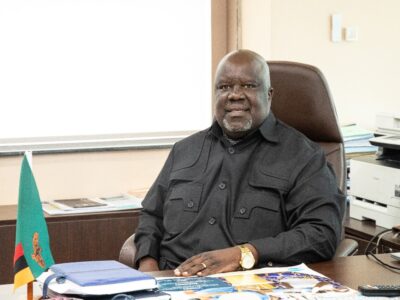Welcome to Justice O’ Metre, an independent tracker on high profile cases affecting mostly politically-exposed persons within the Zambian judicial system, the rule of law and the administration of justice for common good.
DECEMBER IN REVIEW
As 2024 wrapped up, Zambia witnessed a whirlwind of pivotal legal decisions and financial disputes that shaped the national discourse. From clarifying presidential eligibility to tackling corruption, here’s a recap of December’s most significant development:
MICHELO CHIZOMBE V EDGAR LUNGU, AG, ECZ
Former President Edgar Chagwa Lungu’s political ambitions were decisively ended by the Constitutional Court, which ruled him ineligible to contest the 2026 presidential elections.
The court unanimously declared that Lungu’s presidency had already reached the constitutional two-term limit.
Central to the court’s decision was Lungu’s first term, which spanned from January 2015 to September 2016, following the death of President Michael Sata.
Despite its brevity, the period was deemed a full term under Article 106(3) of the Constitution, leaving no room for exceptions.
In a rare and historic move, the court reversed its 2021 ruling, which had declared Lungu eligible to contest the last elections.
The judges described the earlier decision as “per incuriam” and emphasised that constitutional principles must always guide rulings.
The judgment reiterated that Zambia’s Constitution limits the presidency to two terms.
“This court must uphold the spirit of the Constitution, which explicitly limits the presidency to two terms. The people of Zambia have spoken through the Constitution, and we cannot create exceptions where none exist,” the judgment stated.
THE PEOPLE V GBM
Former Defence Minister Geoffrey Bwalya Mwamba (GBM) was ordered by the Lusaka Magistrates’ Court to pay nearly $900,000 and K10 million in penalties related to corruption convictions.
Mwamba’s appeal against his five years conviction did not exempt him from the obligation to repay funds linked to illicit activities.
GBM had argued that enforcing the penalties would prejudice his appeal, but Magistrate Stanford Ngobola dismissed his objections.
The court stated the government’s right to recover stolen funds promptly to safeguard public resources.
NAPSA V FAZ
The Football Association of Zambia (FAZ) faced financial penalties after failing to remit employee pension contributions to NAPSA for over a decade. Ordered to pay K7.2 million, FAZ’s General Secretary Reuben Kamanga pleaded guilty to three counts of non-compliance.
While acknowledging Kamanga’s cooperation, Magistrate Constance Kansankala stressed that the failure to remit contributions was a severe offence.
FAZ was ordered to settle the outstanding amount of K7,222,894.98 in three installments. The first installment of K437,806.98 is due by January 31, 2025.
She warned that non-compliance with the payment plan could lead to further legal consequences.
ESTHER LUNGU V DPP
Esther Lungu, Zambia’s former First Lady, failed in her bid to halt the forfeiture of her 15 luxury flats worth K66 million to the State.
The court ruled that she had not presented compelling grounds to justify delaying the enforcement of an earlier judgment.
The Economic and Financial Crimes Court stated that successful litigants are entitled to the immediate benefits of their judgments.
The same court in separate rulings also denied to stay the execution of the judgement in Tasila Lungu and Chiyeso Lungu’s corruption case.
Both daughters of the former President, the Court had ordered the forfeiture of Tasila’s K8 million farm and Chiyeso’s over K2.9 million state lodge properties.
DPP V RE Property (KAMONO FARM)
Assets belonging to Kamono Farm Initiatives Limited (KFIL) were seized after investigations revealed fraudulent investment schemes. The company, which solicited funds under the guise of farming ventures, was found to have mismanaged client investments and engaged in questionable practices
The seized assets, including vehicles, livestock, and over K7.9 million in cash, were declared proceeds of crime. Investigators uncovered minimal agricultural activity on the company’s leased farms, exposing the scheme’s fraudulent nature.
Last month,the Director of Public Prosecutions, Gilbert Phiri, requested that the said properties be forfeited to the State.
THE PEOPLE VS RONALD CHITOTELA
Patriotic Front MP Ronald Chitotela was sentenced to 10 years in prison for arson by the Kabwe High Court.
The ruling was upheld by Kabwe High Court resident Judge Irene Mbewe, who supported the conviction handed down by the Kawambwa Magistrates’ Court.
Chitotela, a former Cabinet minister, was found guilty alongside his co-accused, Davies Kaniki and Kunda Chitotela.
The conviction was from incidents during the 2021 general elections and had triggered a by-election in Pambashe Constituency.
LUSAMBO IN PROPERTY DISPUTE
Former Lusaka Province Minister Bowman Lusambo was sued in the Lusaka High Court by Zambezi East MP Brian Kambita over a failed property transaction.
Lusambo allegedly received K850,000 for a Lusaka property but failed to transfer ownership or deliver the keys.
Kambita’s lawsuit added to Lusambo’s growing legal challenges. Convicted earlier this year for corruption, Lusambo now faces demands for a refund and damages, further tarnishing his political legacy.
ZCCM-IH v KCM, VEDANTA RESOURCES
The Lusaka High Court ruled that Konkola Copper Mines (KCM) must pay 40 percent of its $29.6 million debt to the Copperbelt Energy Corporation (CEC) within 10 days.
Judge Charles Kafunda criticised KCM for using a pending appeal as an excuse to delay payment.
Justice Kafunda made it clear that CEC, classified as a Class 2 creditor on the Creditors Schemes of Arrangement, has a right to the payment, stating that appeals against the approval of the scheme did not justify withholding payments.
WARNING! All rights reserved. This material, and other digital content on this website, may not be reproduced, published, broadcast, rewritten or redistributed in whole or in part without prior express permission from ZAMBIA MONITOR.












Comments